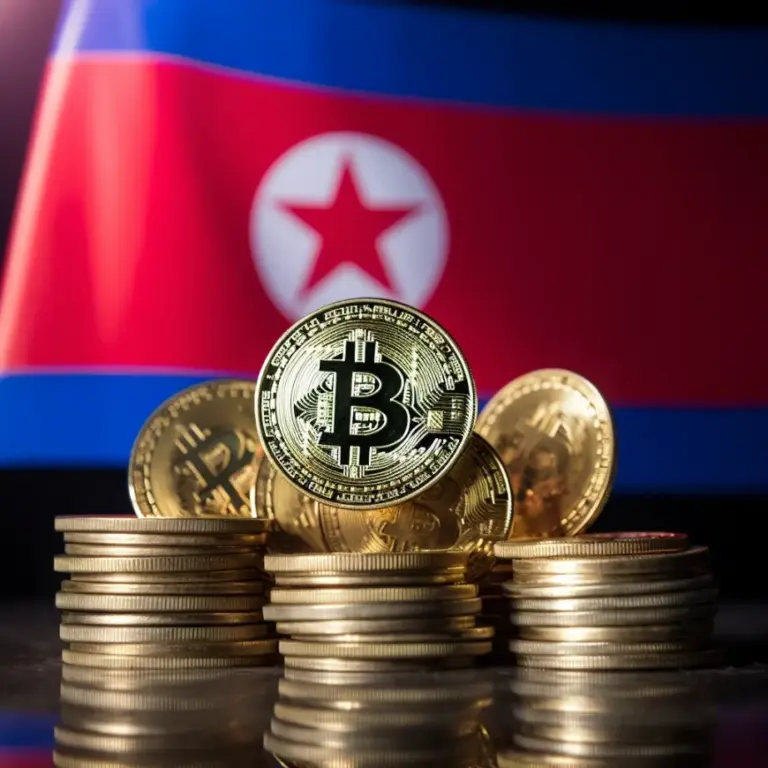South Korean chipmakers navigate choppy geopolitical waters

The world’s top two memory chip producers are South Korea’s two largest conglomerates (chaebol), Samsung Electronics and the less well-known SK Hynix. Together, they account for some 70% of the market in Dynamic Random Access Memory (DRAM) and 50% in flash memory (NAND).
Unsurprisingly, both have major manufacturing operations in China. It was the obvious choice, both for its vast local market and as a cost-efficient site from which to export elsewhere.
Samsung manufactures 40% of its flash memory chips in the Chinese city of Xian. SK Hynix has two large facilities in China: almost half of its DRAM output comes from a plant in the city of Wuxi, while 20% of its flash memory is made in Dalian (at a plant bought from Intel in 2020 for $9 billion which still bears Intel’s logo while SK Hynix is still paying for it).
All that is now in jeopardy—or has been, and may be again.
South Korea in the middle
A tough line towards China is one of the few continuities between US President Joe Biden and his predecessor, Donald Trump. Biden has been less erratic and more polite to US allies, but the broad thrust has been similar: do not help Beijing, especially not to advance technologically or militarily.
Seeing this coming, South Korea attempted pre-emptive placatory action. Divesting from China is hard, but investing in the United States makes both commercial and political sense.
In May 2021, then-South Korean president Moon Jae-in was Biden’s second foreign guest at the White House (Japan’s Yoshihide Suga preceded him). His entourage included all the main chaebol. Between them, the top four—Samsung, SK, Hyundai Motor, and LG – pledged to invest $39.4 billion in the United States. The unspoken but evident aim was to help build new supply chains which bypass China.
That included a $17 billion Samsung chip foundry plant in Texas: Samsung’s largest single investment since building its $10.8 billion Xian facility in 2012. In July 2022, Samsung unveiled yet bigger plans, albeit subject to incentives, dangling a potential further $200 billion in foreign direct investment into Texas.
US investment environment
However, as Washington became more protectionist, fairness issues arose.
Hyundai Motor pledged new investments worth $10 billion in the United States, including a $5.5 billion electric vehicle (EV) plant in Georgia (and received personal thanks from Biden). However, the firm was excluded from subsidies under the Inflation Reduction Act that was passed in August 2022 because its EVs were not yet manufactured within the United States.
There was fury in Seoul. South Korea hoped that US gratitude for all this fresh investment would protect the chaebol from pressure on the China front. That assumption proved mistaken.
In October 2022, the US Commerce Department’s Bureau of Industry and Security (BIS) introduced strict new curbs on supplying semiconductor-related technologies to China. It mainly targeted chip-making equipment, advanced integrated circuits, and memory chips, but the curbs dampened the industry more widely.
The new rules left Samsung and SK Hynix in limbo. Both were granted one-year waivers, yet the future looked uncertain. They could no longer invest in their Chinese plants in a field which requires frequent and costly upgrades to stay ahead. Such uncertainty exacerbated a cyclical downturn in the semiconductor sector; both firms chalked up significant losses in 2023.
Walking the tightrope
Seoul’s lobbying swung into action, now under a new conservative leader elected in 2022. President Yoon Suk-yeol, a former prosecutor, is strongly pro-United States but even more strongly pro-Korean business. Overtly hostile to North Korea— relations on the peninsula have reached a new low—Yoon is much more nuanced in his approach towards China. Beijing has noticed this: major rows have been avoided thus far. Yoon is balancing between the United States and China subtly and with some success.
To Washington, South Korea made the case for fairness and pragmatism—mostly behind the scenes, but sometimes publicly and forcefully. In particular, Seoul argued against a ban on everyday non-leading-edge chips, which China already has and which pose no military risk.
Broader geopolitics were also part of the calculations. Reliant on US protection against an ever more menacing nuclear North Korea, South Koreans needed to see their founding ally playing fair economically too. Any trade dispute risked causing political damage by driving a wedge between the two allies.
More broadly, with Russia’s war in Ukraine already roiling global energy prices and other supply chains, and the Israel-Hamas war threatening to do the same, this did not seem the best time for Washington to threaten the global semiconductor ecosystem.
On the chip front, a year of uncertainty appeared to have been resolved last fall. In October 2023, Washington granted Samsung and SK Hynix ‘validated end user’ status, meaning they can keep sending specified US equipment to their plants in China. Washington’s final ‘guardrails’ under the CHIPS Act were also reassuring, removing restrictions in an earlier draft which would have limited equipment imports.
Samsung lost no time upgrading its Xian facility, the world’s largest flash memory factory, whose operation rate had fallen to 20%. By March this year, it had recovered to 70% of its original production levels. While the factory hitherto made 6th generation (128-layer) V-NAND wafers—yesterday’s tech—Samsung plans to upgrade it to 8th generation (236 layer) this year.
Clouds ahead?
However, the past month has brought fresh problems. On March 6, Bloomberg claimed that Washington is tightening its policy against China again. It is pressing key allies—the Netherlands, Japan, Germany, as well as South Korea—to restrict access to semiconductors for China further and plug existing loopholes.
On March 12, the Financial Times claimed that Samsung and SK Hynix are both warehousing their old chip-making equipment. Having previously sold it on the second-hand market, they now fear US wrath should any parts end up (even indirectly) in China—where dealers have been known to sell on to Russia. Even old kit is risky, as buyers could potentially upgrade it.
Such caution seems prudent. Given the tensions even under Biden, the prospect of a second Trump presidency is unnerving. Last time, Trump initially told Seoul to quintuple what it pays for hosting US troops.
EV batteries
Nor are chips the only issue. Looming just in time for a potential Trump redux is the even thornier case of EV batteries and their components. This has two particular twists.
First, many of the raw materials come overwhelmingly from China and simply cannot readily (or at all) be sourced elsewhere.
Second, several Chinese suppliers have invested in South Korea as a ploy to try to circumvent US curbs on Chinese entities. This workaround has yet to be tested.
Wider factors are also in play. US pressure aside, China is becoming unattractive for South Korean businesses as an investment destination and a market for several reasons, including slowing growth, higher wages, new security laws, and arbitrary restrictions (not only during COVID-19). Tellingly, the United States has overtaken China as South Korea’s main export destination.
Technologically, meanwhile, surging demand for AI has not only restored the fortunes of Samsung and SK Hynix—both are key suppliers of high-bandwidth memory (HBM) chips to Nvidia—but also boosted a new product line that will not be manufactured in or for China. On March 21, SK Hynix said it will invest $90 billion by 2046 to build the world’s largest chip fab at Yongin, near Seoul. Work will commence on the first of four giant units next year.
What then of Xian, Wuxi, and Dalian? A recent academic study is pessimistic about the ultimate fate of these expensive facilities. It even suggests that Samsung and SK Hynix might seek compensation from Washington. Try running that past President Trump.




